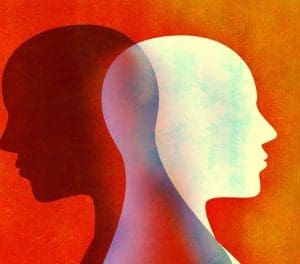Description
Treating Co-Occurring Substance Use & Psychiatric Diagnoses: A Discussion of Integrated Treatment
This course offers 3 Online CE hours of SS (EBT)(PSY).
Target Audience: Psychologists, Licensed Clinical Mental Health Counselors, Licensed Clinical Social Workers, Licensed Clinical Addictions Specialists, Certified Alcohol & Drug Counselors, Licensed Marriage & Family Therapists.
Content Level: The course was developed for social workers, addictions professionals, and other mental health professionals at all the beginning and intermediate practice levels.
For Board Approval Statements, please visit: https://cetrainingworkshops.com/company-policies-and-professional-board-approval-statements/
Note: This course is not approved by the ASWB for continuing education purposes.
The term “dual diagnosis” describes the clinically challenging comorbidity of a substance use disorder (SUD) along with another major mental illness. Evidence-based psychotherapies for addiction, including motivational interviewing, cognitive-behavioral therapy, relapse prevention, contingency management, skills training, and/or case management, are a necessity and must be balanced with rational and appropriate pharmacotherapy targeting both the SUD as well as the other disorder. Treating patients with co-occurring disorders (CODs) within integrated dual-disorder treatment (IDDT) programs sounds straightforward. However, implementing evidence-based “best practice” treatment is a significant challenge in the real world for several reasons. In this webinar, we will explore the challenges of working with a dual-diagnosed client from accurate diagnosing to determining the best integrated dual-diagnosis treatment (IDDT) plan, and the challenges in the ‘real world’ that these clients face to managing their diagnoses.
Upon completion of this training, participants will be able to:
Identify the main concepts of dual diagnosis
Explain diagnostic dilemmas and the most common dual diagnoses
Understand “real world” challenges that dually diagnosed clients face in recovery and mental health management
Demonstrate through case studies and breakout sessions evidence-based treatments effective in working with dually diagnosed
Identify & Implement pharmacology and medication-assisted treatment while understanding potential contraindications







